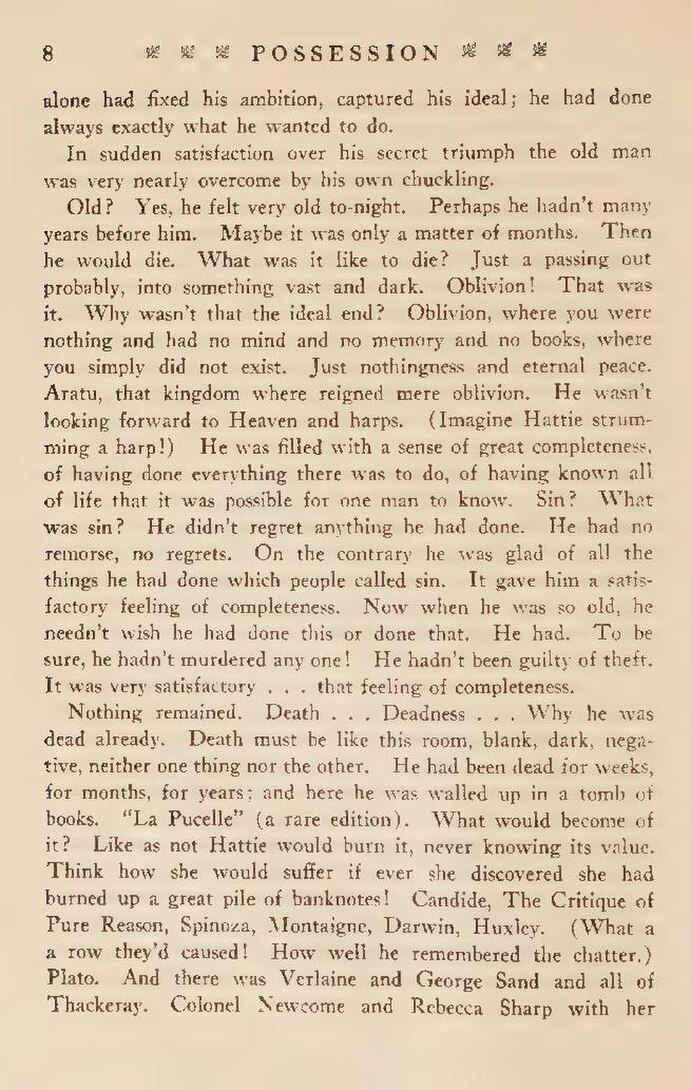alone had fixed his ambition, captured his ideal; he had done always exactly what he wanted to do.
In sudden satisfaction over his secret triumph the old man was very nearly overcome by his own chuckling.
Old? Yes, he felt very old to-night. Perhaps he hadn't many years before him. Maybe it was only a matter of months. Then he would die. What was it like to die? Just a passing out probably, into something vast and dark. Oblivion! That was it. Why wasn't that the ideal end? Oblivion, where you were nothing and had no mind and no memory and no books, where you simply did not exist. Just nothingness and eternal peace. Aratu, that kingdom where reigned mere oblivion. He wasn't looking forward to Heaven and harps. (Imagine Hattie strumming a harp!) He was filled with a sense of great completeness, of having done everything there was to do, of having known all of life that it was possible for one man to know. Sin? What was sin? He didn't regret anything he had done. He had no remorse, no regrets. On the contrary he was glad of all the things he had done which people called sin. It gave him a satisfactory feeling of completeness. Now when he was so old, he needn't wish he had done this or done that. He had. To be sure, he hadn't murdered any one! He hadn't been guilty of theft. It was very satisfactory . . . that feeling of completeness.
Nothing remained. Death . . . Deadness . . . Why he was dead already. Death must be like this room, blank, dark, negative, neither one thing nor the other. He had been dead for weeks, for months, for years; and here he was walled up in a tomb of books. "La Pucelle" (a rare edition). What would become of it? Like as not Hattie would burn it, never knowing its value. Think how she would suffer if ever she discovered she had burned up a great pile of banknotes! Candide, The Critique of Pure Reason, Spinoza, Montaigne, Darwin, Huxley. (What a a row they'd caused! How well he remembered the chatter.) Plato. And there was Verlaine and George Sand and all of Thackeray. Colonel Newcome and Rebecca Sharp with her
